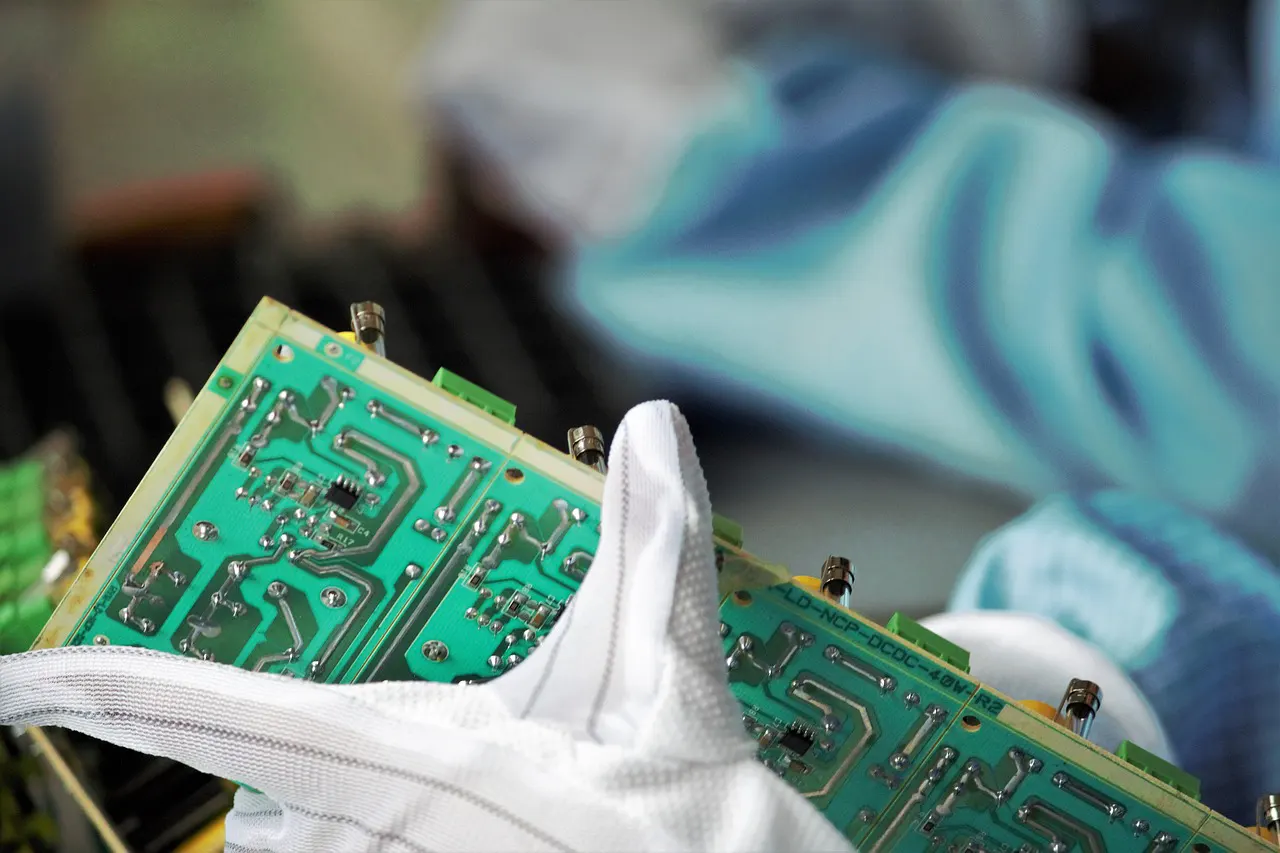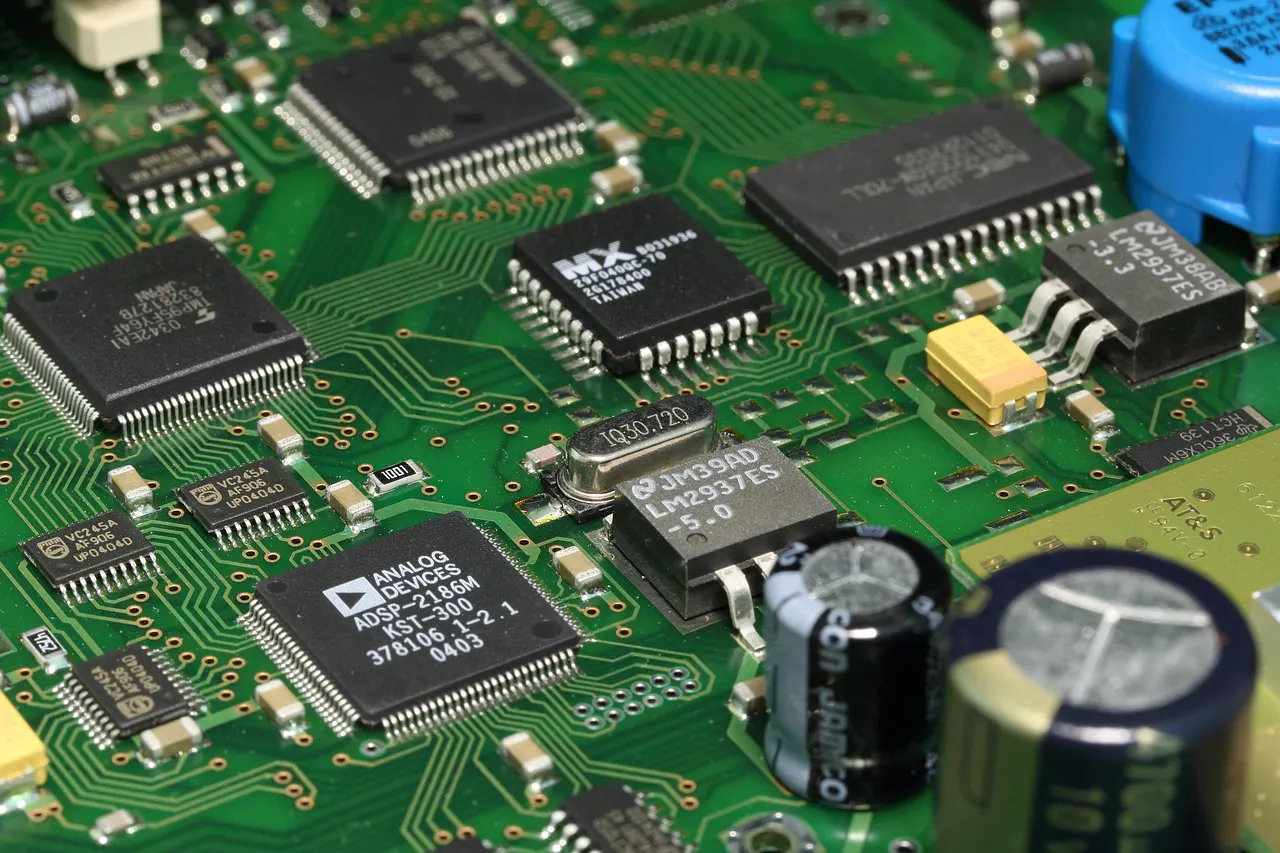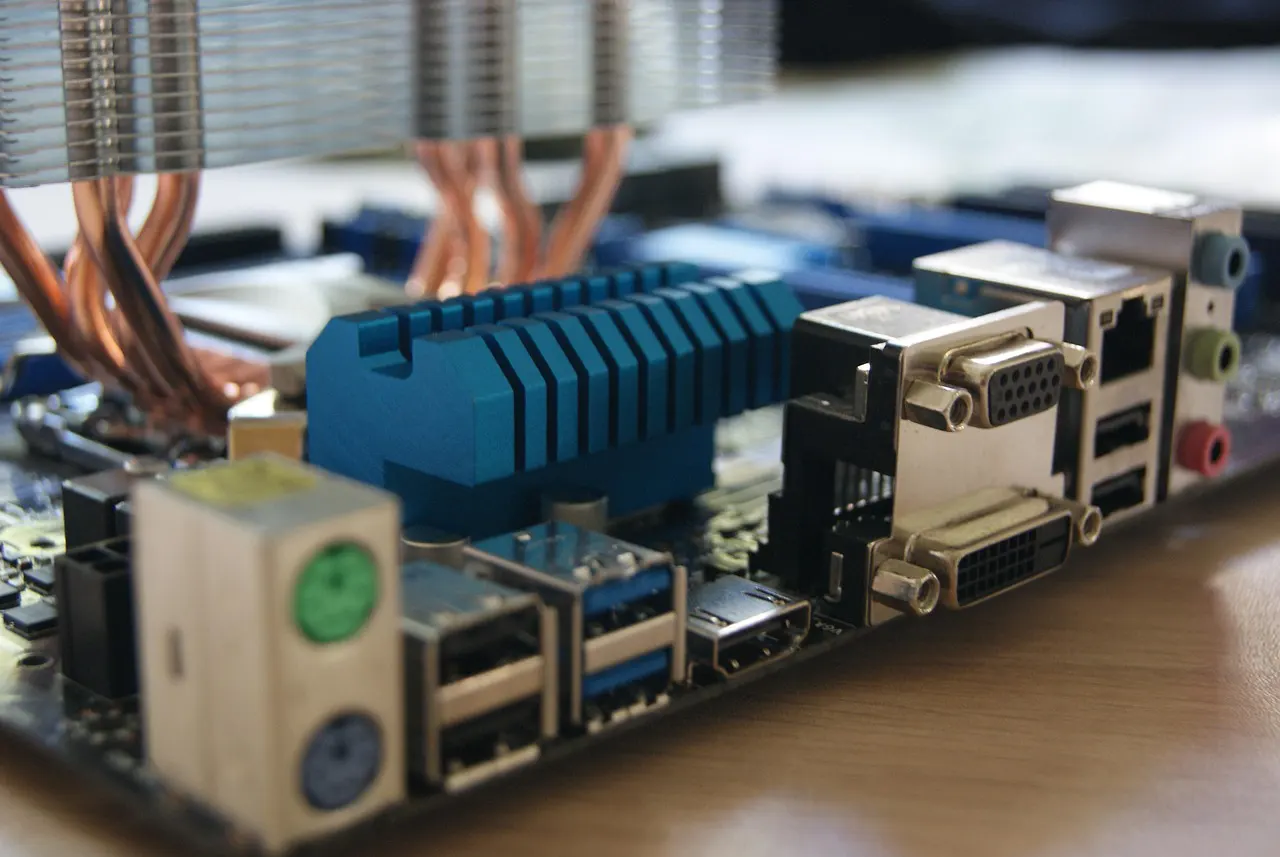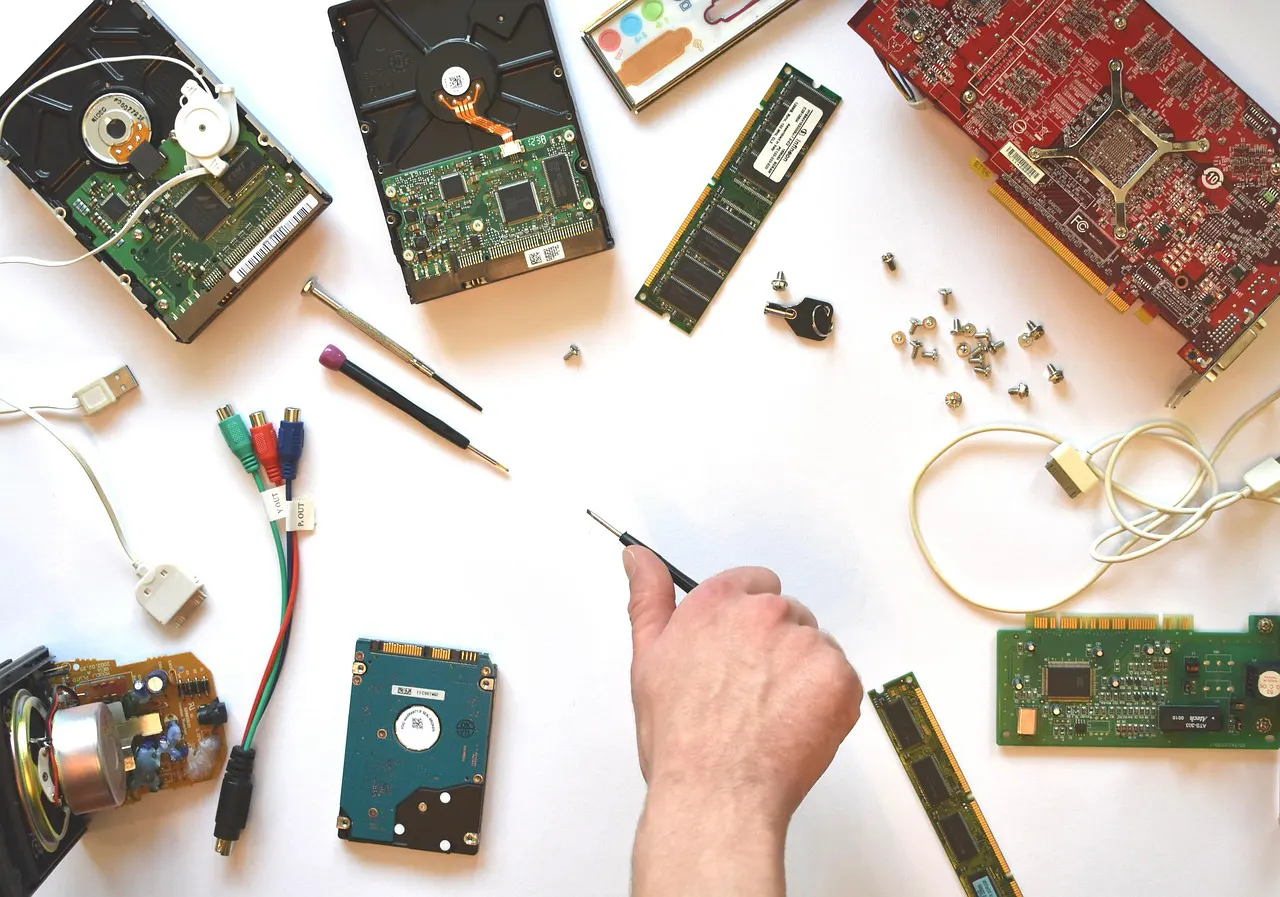
In today's hyper-connected and innovation-driven economy, the ability to produce reliable, high-performance electronic products quickly and cost-effectively is essential. This is where electronic contract manufacturing (ECM) plays a pivotal role. ECM allows businesses to outsource the design, production, and sometimes even the distribution of electronic components and products to third-party specialists. These electronic contract manufacturing companies help businesses across various sectors scale faster, reduce production costs, and accelerate time-to-market.
This article provides an in-depth exploration of electronics contract manufacturing, discusses the services offered, compares the top contract manufacturing companies, and answers common questions. It’s an essential read for anyone considering a contract electronics manufacturing company to support their production needs.
What is Electronic Contract Manufacturing?

Electronic Contract Manufacturing refers to a business model in which companies delegate the production of electronic goods and components to third-party manufacturers. These service providers—also known as contract electronics manufacturing companies—handle tasks ranging from printed circuit board (PCB) assembly to full system integration and packaging.
This model is particularly useful for Original Equipment Manufacturers (OEMs) that want to focus their resources on core business activities like R&D, marketing, and sales, rather than production logistics. ECM partners bring technical expertise, supply chain networks, and advanced manufacturing capabilities that many companies can’t maintain in-house.
Evolution of Electronic Contract Manufacturing(ECM)
Electronic Contract Manufacturing (ECM) has evolved from its origins in the 1970s, with Solectron being one of the early pioneers. Initially, ECM focused on outsourcing PCB assembly, allowing OEMs to focus on product development. Over time, ECM has expanded to include a wider range of services, including design, testing, and even end-to-end solutions. The industry is now seeing growth driven by factors like globalization, increasing demand, and the integration of new technologies like Industry 4.0.
Historically, OEMs managed all aspects of manufacturing. However, as electronics became more complex and global competition intensified, outsourcing became a cost-effective and flexible alternative. The ECM industry has since evolved to encompass:
• Design services
• Prototyping and testing
• Component procurement
• Assembly and integration
• Aftermarket services (repair and refurbishment)
Today, leading contract electronic manufacturing services providers are critical partners to companies ranging from startups to Fortune 500 giants.
Key Services Offered by Electronic Contract Manufacturing Companies

Contract manufacturing services refer to the process where companies outsource their manufacturing operations to specialized manufacturers. Contract manufacturing solutions allow businesses to increase production outputs, accommodate specialized manufacturing needs, and reduce costs without the need for in-house manufacturing infrastructure. Many businesses turn to contract manufacturing for its cost-saving benefits, enabling them to optimize their resources and afford the maintenance of costly equipment.
Contract manufacturers offer a range of services, including contract machining, contract assembly, and subcontracting, to meet diverse production needs.They offer a diverse range of capabilities tailored to meet various industry needs. Their expertise encompasses a broad spectrum of manufacturing processes such as milling, sawing, planning, tapping, drilling, turning, boring, and grinding. In response to evolving demands, many are also adopting advanced technologies like electrical discharge machining, ultrasonic machining, and electrochemical machining.
ECM companies offer a wide range of services tailored to the specific needs of their clients. These include:
1. PCB Assembly (PCBA)
PCB assembly is the process of attaching electronic components to a printed circuit board (PCB) to create a functional electronic assembly (PCBA). It involves various steps, including component procurement, solder paste application, component placement, soldering, and inspection.
This is the cornerstone of most electronics contract manufacturing projects. PCBA involves placing and soldering electronic components onto printed circuit boards. Services often include:
• Surface-mount technology (SMT)
• Through-hole assembly
• Mixed technology assembly
2. Cable and Wire Harness Assembly
Cable and Wire Harness Assembly refers to the process of organizing, bundling, and securing wires or cables into a single unit to efficiently transmit signals or electrical power. These assemblies are widely used in industries such as automotive, aerospace, electronics, telecommunications, industrial machinery, and medical devices. Includes designing and assembling custom cable configurations to meet unique specifications for various applications, especially in automotive and aerospace sectors.
3. Box Build and System Integration
Box Build and System Integration refers to the comprehensive assembly process that goes beyond just wiring or PCB (printed circuit board) mounting—it includes assembling an entire electronic or electromechanical system into its final enclosure or housing. This service is also known as electro-mechanical assembly and is often provided by contract manufacturers or EMS (Electronics Manufacturing Services) providers.
This goes beyond component assembly and involves putting together entire systems, including:
• Mechanical enclosure assembly
• Power supply integration
• Final system testing
4. Prototyping Services
Prototyping Services are specialized offerings by manufacturers or product development companies that help turn a concept or design into a functional, tangible model—a prototype—for testing, validation, and refinement before full-scale production begins. Before moving to full-scale production, companies often require prototypes to test functionality, gather feedback, and perform compliance checks.
5. Component Sourcing and Procurement
Component Sourcing and Procurement is the process of finding, evaluating, acquiring, and managing electronic parts and components needed to manufacture products or systems. This is a critical stage in the electronics supply chain, ensuring that the right parts are available at the right time, quality, and price. Top ECMs have global supplier networks, enabling:
• Cost-effective component sourcing
• Inventory management
• Supply chain risk mitigation
6. Design and Engineering Support
Design and Engineering Support refers to the technical assistance and expertise provided throughout the product development lifecycle—from concept and design to prototyping, testing, and production. It ensures that products are not only functional and manufacturable, but also optimized for performance, cost, and reliability. Some ECM providers help with design for manufacturability (DFM), ensuring that products are not only functional but also easy to mass-produce.
7. Testing and Quality Control
Testing and Quality Control (QC) are critical processes in manufacturing that ensure products—especially electronic and electromechanical systems—function as intended, meet design specifications, and are safe, reliable, and consistent before they reach customers. Robust QA/QC processes are essential. Common methods include:
• In-circuit testing (ICT)
• Automated optical inspection (AOI)
• Functional testing
• X-ray and ultrasonic testing
8. Logistics and Aftermarket Services
Logistics and Aftermarket Services refer to the support activities that happen after production, ensuring products reach customers efficiently and remain operational throughout their lifecycle.
• Warehousing
• Packaging
• Shipping
• Returns and repair management
Benefits of Contract Electronics Manufacturing
Most contract manufacturers strive to prove their reliability and position themselves as ideal long-term partners. They take pride in showcasing their organizational skills and their ability to meticulously track customer orders. If a potential contract manufacturer doesn’t convey these qualities, it’s wise to proceed with caution. Unreliable manufacturers can lead to significant issues, including delivering substandard goods or services. Additionally, if you’re sharing proprietary technology and specifications, a dishonest partner could embroil you in intellectual property disputes.
Contract manufacturing—where a company outsources production to a third-party manufacturer—offers a range of benefits that can streamline operations, cut costs, and boost flexibility. Here’s a breakdown of the key advantages. Companies that opt for contract electronics manufacturing services often realize significant advantages, such as:
| Benefit | Description |
|---|---|
| Cost Reduction | Eliminates the need to invest in facilities, machinery, and labor. |
| Faster Time to Market | Streamlined production and access to expertise accelerate launches. |
| Scalability | Flexibility to adjust production volumes according to market demand. |
| Access to Technology | Leverage cutting-edge tools and processes without owning them. |
| Improved Quality | Experienced ECMs have stringent QA practices. |
| Focus on Core Competencies | Enables businesses to concentrate on innovation and growth. |
Comparison: Top Contract Manufacturing Companies
Here’s a list of the Top Contract Manufacturing Companies globally, known for their scale, technology, quality, and ability to deliver complex, high-volume manufacturing services across industries such as electronics, medical devices, automotive, aerospace, and consumer goods.
Choosing the right partner from a pool of top contract manufacturing companies is crucial. Below is a detailed comparison of leading players:
| Company Name | HQ Location | Core Services | Industry Focus | Certifications | Global Reach |
| Flex Ltd. | San Jose, USA | Full ECM, logistics, design | Industrial, medical, automotive | ISO 9001, ISO 13485, IATF 16949 | 30+ countries |
| Jabil Inc. | St. Petersburg, USA | Design, manufacturing, supply chain | Healthcare, telecom, automotive | ISO 9001, ISO 14001 | 100+ sites globally |
| Celestica | Toronto, Canada | Assembly, testing, logistics | Aerospace, defense, IT | AS9100, ISO 13485 | North America, Asia, Europe |
| Sanmina | San Jose, USA | PCBA, box build, logistics | Communications, defense, medical | ISO 9001, TL 9000 | 75+ facilities globally |
| Benchmark Electronics | Tempe, USA | Prototyping, test dev, production | Industrial, aerospace | AS9100, ISO 13485 | USA, Europe, Asia |
| Plexus Corp. | Neenah, USA | Product design, manufacturing | Healthcare, aerospace | ISO 9001, ISO 13485 | Global footprint |
| Zollner Elektronik | Zandt, Germany | Mechatronics, system integration | Medical, industrial | ISO 9001, ISO 14001 | EU, USA, Asia |
| Kimball Electronics | Jasper, USA | PCBA, testing, logistics | Medical, automotive, industrial | ISO 13485, TS16949 | USA, Europe, Asia |
Industry Applications of ECM

Industry Applications of Electronic Contract Manufacturing (ECM) span across multiple sectors where the need for precision, scalability, and specialized expertise in electronics production is critical. ECM providers support Original Equipment Manufacturers (OEMs) by handling various aspects of design, assembly, testing, and logistics—helping businesses bring complex electronic products to market faster and more cost-effectively.
Electronic contract manufacturing is a backbone service across many industries, including:
• Medical Technology: Life-saving devices like pacemakers, imaging systems, and monitoring equipment.
• Automotive Electronics: ADAS systems, infotainment, and battery management systems.
• Industrial Automation: Robotics, control systems, and sensors.
• Telecommunications: Routers, switches, and optical network components.
• Aerospace and Defense: Secure communication systems, avionics, and radar units.
• Consumer Electronics: Smartphones, gaming consoles, wearable tech.
Emerging Trends in Contract Manufacturing USA and Beyond
Emerging Trends in Contract Manufacturing (USA and Beyond) reflect how the industry is evolving to meet the demands of globalization, technological innovation, and sustainability. As manufacturing complexity increases, contract manufacturers are adapting to provide more flexible, efficient, and cost-effective solutions. Here are the key trends shaping the future of contract manufacturing.
The future of contract manufacturing is shaped by technological innovation, geopolitical changes, and shifting customer demands. Companies that embrace advanced technologies, adopt sustainable practices, and prioritize supply chain resilience will be the ones to thrive in the increasingly competitive global market.
• Reshoring and Nearshoring: Companies are increasingly choosing contract manufacturing companies in USA to mitigate global risks and reduce lead times.
• Smart Manufacturing: Integration of AI, IoT, and data analytics for real-time monitoring and predictive maintenance.
• Sustainability Initiatives: More contract manufacturing companies are focusing on eco-friendly materials and energy-efficient operations.
• Customization at Scale: Mass customization is now possible through agile manufacturing practices and digital workflows.
• Cybersecurity and IP Protection: Growing concern and investment in secure data exchange and intellectual property protection.
Pros and Cons of Contract Electronic Manufacturing
Before finalizing an agreement with a contract manufacturer, it’s essential to evaluate several key factors. Consider whether the manufacturer utilizes advanced technology and has the capabilities to meet your standards. Assess their delivery options and timelines to ensure products will arrive as needed. Review their payment plans, reputation, and years of operation. If a manufacturer can’t meet your production and shipping deadlines, seek out another one who can.
Furthermore, any manufacturer you engage with should be open to working on a trial basis before you commit to a contract. Hesitance to offer this can signal a lack of transparency. Be cautious if they are unwilling to negotiate payment plans, discuss customizations, or provide quality assurances, as these are additional warning signs.
| Pros | Cons |
| Lower costs | Less direct control |
| Expert capabilities | Risk of dependency |
| Faster development cycles | Possible IP leakage |
| Better scalability | Communication challenges |
| Reduced capital expenditure | Varying quality standards among vendors |
How to Select the Right Contract Manufacturing Partner

Contract manufacturers are essential partners in crafting and planning products and services for their clients. Our role involves a deep dive into understanding each client’s specific requirements, expectations, and goals. We start with a comprehensive analysis of the client’s needs, including product specifications, quality standards, and regulatory criteria. With this foundation, our design team collaborates closely with the client to create a customized solution. This process includes conceptualizing, prototyping, and fine-tuning the product or service design until it perfectly reflects the client’s vision.
We take into account several key factors—cost-efficiency, scalability, and manufacturability—during the design phase. Once the design is finalized, we meticulously plan the production process, including sourcing materials, allocating resources, and setting timelines. Our goal is to ensure that every step is executed efficiently and effectively, adhering to the agreed-upon quality standards and delivery schedules. Through our collaborative approach, we are committed to providing our customers with tailored, high-quality products and services that meet their specific needs and market demands.
1. Assess Technical Capabilities: Ensure compatibility with your technology stack and product complexity.
2. Verify Certifications: Choose companies compliant with standards relevant to your industry.
3. Visit Facilities: Conduct audits to observe processes and quality standards.
4. Request Samples and Case Studies: Review their success with similar projects.
5. Review Contract Terms: Ensure clarity in service level agreements (SLAs), IP ownership, and warranty provisions.
FAQ about Electronic Contract Manufacturing
Q1: What exactly is contract electronic manufacturing?
It's the outsourcing of electronic product manufacturing to third-party specialists who provide end-to-end production services.
Q2: Which industries benefit most from contract manufacturing?
Sectors such as medical, automotive, telecom, aerospace, and consumer electronics rely heavily on ECM for quality and cost efficiency.
Q3: What are the top contract manufacturing companies in the USA?
Flex, Jabil, Sanmina, and Benchmark are among the top contract manufacturing companies in USA.
Q4: Can ECM companies help with design and prototyping?
Yes, many ECMs offer DFM (Design for Manufacturability), prototyping, and testing services.
Q5: Are there risks in outsourcing manufacturing?
Yes—quality issues, IP concerns, and communication barriers. Choosing a reputable contract electronics manufacturing services provider mitigates these risks.
Q6: What certifications should an ECM company have?
Relevant certifications include ISO 9001, ISO 13485 (medical), AS9100 (aerospace), and IATF 16949 (automotive).
Q7: What differentiates a top manufacturing contractor?
Experience, flexibility, global capabilities, customer service, and a solid track record in quality delivery.
Conclusion
Partnering with the right electronic contract manufacturing company offers a strategic advantage in today’s competitive marketplace. Whether you're seeking contract manufacturing USA or global options, ECM enables you to deliver quality products faster, cheaper, and more efficiently. By choosing from the top contract manufacturing companies, aligning services with your goals, and maintaining open communication, your organization can transform from concept to consumer with confidence.
Furthermore, ECM is no longer just a tactical decision; it is a strategic one. As technologies evolve and product life cycles shorten, working with the right contract electronic manufacturing services provider helps companies remain agile and innovative. The future of electronics depends not just on smart ideas, but on smart manufacturing partners who can turn those ideas into scalable, market-ready solutions.
Ready to scale your production? Partner with a trusted contract electronics manufacturing company today and focus on what you do best—innovate and lead.
Read More:
• Key Factors for Purchasing Semiconductor Components
• Semiconductor | Definition, Examples, Types, Uses, Materials, Devices, & Facts
• What is the appropriate level of CapEx relative to the semiconductor market?
Written by Jack Zhang from AIChipLink.
AIChipLink, one of the fastest-growing global independent electronic component distributors in the world, offers millions of products from thousands of manufacturers, and many of our in-stock parts is available to ship same day.
We mainly source and distribute integrated circuit (IC) products of brands such as Broadcom, Microchip, Texas Instruments, Infineon, NXP, Analog Devices, Qualcomm, Intel, etc., which are widely used in communication & network, telecom, industrial control, new energy and automotive electronics.
Empowered by AI, Linked to the Future. Get started on AIChipLink.com and submit your RFQ online today!













